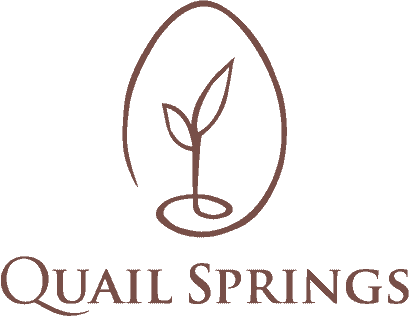Thank You For Your Payment!
We are thrilled that you decided to join us for this learning journey. Below is more information on what to expect, how the course will flow, and our favorite resources to get you rolling before the course begins.
Timelines & Flow:
- The course starts on May 20, 2023 and runs through November 19, 2023. We will send out reminders and other info as we get closer to the start date of the course.
- The course will be mainly self-guided week to week, with the bulk of the content being pre-recorded video and written content.
- To complete the 72 hour curriculum and gain your Permaculture Design Course certificate of completion, we expect the course to take approximately 4-7 hours of your time per week. This may fluctuate with the time spent on the design project workbook.
- The content will be available in segments to keep things more organized and less overwhelming! We do expect students to follow the weekly cadence of the course (i.e. that you will stay on track and complete your weekly design project work, etc.).
- A core part of this course is the group or individual permaculture design project that you will be creating, which students will work on week-to-week on their own (with clear guidance!).
Software & Platforms:
This course will use 4 different platforms.
Main learning platform: (learn.quailsprings.org) You will be asked to create an account when you register and pay for the course. This is where you will follow the written and video curriculum week to week.
Google Docs: This is where you will be working on your permaculture design project week to week. The design project is optional, but required to obtain a Quail Springs Permaculture Design Course certificate of completion. To use Google Docs you will need a Google Account. If you don’t have a Google account, sign up here.
Slack: Our interactive course discussion forum will use Slack (what is this?). This is where participants will get the chance to interact with one another and instructors, ask questions, and share resources and projects! Before the course starts, participants will receive a Slack invitation via email with instructions on how to join - all will be asked to join the course Slack workspace. You can create your account here. Also, here's a tutorial to get you up and running with Slack.
Zoom: Zoom is an audio/video conferencing platform that we’ll use to virtually meet with you and the instructors during the Live Sessions. You can create a free account here. You don't need a Zoom account to use Zoom, but we highly encourage you to familiarize yourself with this platform.
We will have clear tutorials in the course curriculum for how to use all of these platforms, but we highly encourage you to familiarize yourself as much as possible and find other tutorials on them, so that we can all be ready to jump into this together.
Keep an eye on your email inbox for more information and details as we get closer to the beginning of the course. If you have any other questions in the meantime, please feel free to email our Program Director here.
Also, please bookmark this page if you'd like to save all the information & resources contained within!
Resources
Books
- Practical Permaculture: For Home Landscapes, Your Community, and the Whole Earth — Dave Boehnlein and Jessi Bloom
- Before the Wilderness: Environmental Management by Native Californians — Blackburn and Anderson (eds.)
- Essence of Permaculture — David Holmgren (free PDF online)
- Permaculture: A Designer’s Manual — Bill Mollison
- Intro to Permaculture — Bill Mollison
- Tending the Wild — M. Kat Anderson
- Earth User’s Guide to Permaculture — Rosemary Morrow
- The Biggest Estate on Earth — Bill Gammage
- Shelter — Lloyd Khan
- The Permaculture Home Garden — Linda Woodrow
- Farmers of Forty Centuries — F.H. King
- Grass, Soil, Hope: A Journey Through Carbon Country — Courtney White
- Braiding Sweetgrass — Robin Wall Kimmerer
- The Permaculture City: Regenerative Design for Urban, Suburban, and Town Resilience — Toby Hemenway
- Sand Talk — Tyson Yunkaporta
- The Dreamt Land: Chasing Water and Dust Across California — Mark Arax
- The One-Straw Revolution — Masanobu Fukuoka
- Gaia's Garden — Toby Hemenway
- Lo-TEK Design by Radical Indigenism — Julia Watson
- The Resilient Farm and Homestead — Ben Falk
- Change Here Now — Adam Brock
- People & Permaculture — Looby Macnamara
- Permaculture: Pathways & Principles Beyond Sustainability — David Holmgren
- 7 Ways to Think Differently — Looby Macnamara
- Change Here Now: Permaculture Solutions for Personal and Community Transformation — Adam Brock
- Designing Regenerative Cultures — Daniel Christian Wahl
- Cultural Emergence: A Toolkit for Transforming Ourselves & the World — Looby Macnamara
- A Pattern Language — Alexander, Ishikawa, & Silverstein
- Creating a Life Together: Practical Tools to Grow Ecovillages and Intentional Communities — Diane Leafe Christian
- People and Permaculture: Caring and Designing for Ourselves, Each Other and the Planet — Looby Macnamara
Articles & Websites
- How To Decolonize The Permaculture Movement — Tobias Roberts
- Permaculture as a Gringo Movement — Tobias Roberts
- Permaculture Women Facebook Group
- Black Permaculture Network
- Permies.com
- urbanpermacultureguild.org
- Liberation Ecology - Rafter Sass Ferguson


